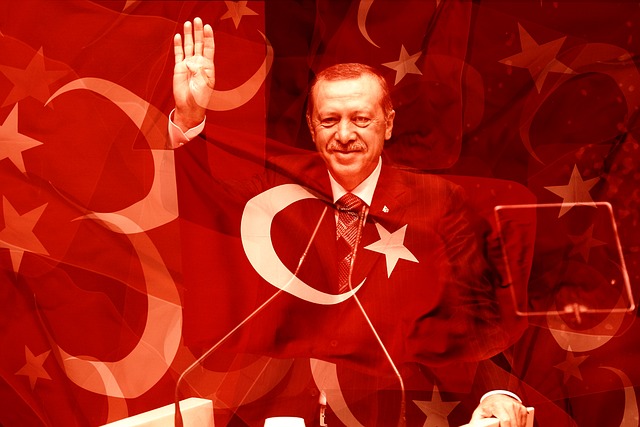By Prof. Dr İLTER TURAN
After the dust of the elections have settled and the government has begun to tend to its daily business, one of the first persons to visit President Erdoğan was the prime minister Mesrur Barzani of the Kurdish Regional Government of Iraq. Turkish government has cultivated friendly relations with the KRG. It is not unusual that one of the first foreign visitors of the President is from there. Apart from pleasantries, however, they had important topics to discuss.

One major item that is always on the agenda in Turkish-Kurdish meetings is the PKK terrorist activity by groups that operate out of Northern Iraq. Türkiye conducts regular raids into Northern Iraq in pursuit of terrorists and it maintains modest military bases to meet the terrorist challenge before it reaches the country. Neither the Iraqi National Government and nor the KRG can openly acknowledge that they welcome Turkey’s territorial presence or its frequent interventions. The national government is incapable of controlling the area from which activity against Türkiye is conducted. It is therefore not in a position to do much except voice occasional disapproval. In the KRG, on the other hand, the PKK is perceived as a challenge to the current government that is dominated by the Barzanis. Both Türkiye and the KRG believe that the other major KRG political force, the Talabanis, extend support to the PKK and use it against both. While it is politically impossible for it to respond to Turkey’s anti-terrorist activity favorably, the KRG government prefers not to render it into an issue that stands in the way of good relations.
The more important issue of concern to the Iraqi National Government, the KRG and Türkiye is the Kirkuk-Ceyhan pipeline that carries Iraqi oil to global markets through facilities at Yumurtalık. From a strictly business perspective, this is a highly beneficial transport and marketing route from which Iraq and KRG earn sales income and Türkiye transit fees. It also constitutes another source from which Türkiye can meet its need for oil. Unfortunately, however, the pipeline has been more a source of problems. During Saddam’s time, the American imposed restrictions to deny him external earnings, led it to fall into disuse much of the time. After the emergence of new Iraq, there has been much debate between the Iraqi National Government and the KRG as regards who should get how much of the proceeds and therefore control its functioning.
What is the problem? Much of the oil is produced in the KRG area but the underground wealth belongs to the Iraqi National Government which has agreed to return a certain part of the proceeds to the KRG. Several problems have emerged. The KRG is very much dependent on this income to function as government and not surprisingly finds the share allocated to it insufficient. The problems do not end there, however. Payments are slow and they are dependent on the functioning of the pipeline. There has been occasions when the Iraqi and Turkish governments have failed to reach agreement and the flow of oil has stopped. In fact, there was a period during the last decade when the Turkish and Iraqi governments could not reach agreement whereupon Türkiye and KRG made a special arrangement to ship oil. The proceeds did not go the the Iraqi National Government but to the KRG.
The Iraqi government took Türkiye to arbitration at the International Chamber of Commerce (ICC) in Paris, arguing that, by allowing shipments of oil through the pipeline that had not been approved by the State Organization for Marketing Oil (SOMO), the latter had violated the Turkish-Iraqi pipeline agreement of 1973. In March this year, the ICC issued its first ruling, finding the Iraqi complaint for the 2014-2018 period justified. Some of Türkiye’s objections were also heeded, helping to reduce the penalty it would pay to around 1.5 billion USD. The flow of oil has stopped and the arbitration review for the post-2018 period is continuing. The Turkish government has started to negotiate with the Iraqi National Government to settle debts and restore the flow of oil. Understandably, KRG is anxious to have the pipeline operating. While Türkiye is also interested in concluding a deal, it wants to agree on a reasonable arrangement whereby it will not pay cash to Iraq but refund it over time as oil is sent to international markets.
It is typical for Türkiye to perform balancing acts in its foreign policy these days, its relations with Ukraine and Russia being the prime example. Its relations with the Iraqi National Government and the KRG also call for a balancing act. Mistakes not only lead to declines in oil transit revenues, but also missed opportunities for exports of goods and services to Iraq including major construction contracts. Worsening relations with other Arab countries is another unwanted outcome. Mistakes, however, could also result in problematical relations with the KRG that Türkiye views as a friend and a source of support in its efforts to fight terrorism. Iraq is another domain where Türkiye must be careful.
By Prof. Dr İLTER TURAN
